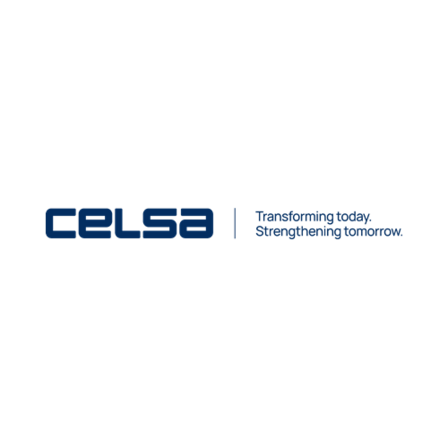Speed meets reliability: Celsa and AEB
The journey of a leading producer of low-emission circular steel to a new and efficient customs process after Brexit.
Challenge
When Brexit took effect in 2021, UK-based Celsa had a large part of its customer base in EU member states. To continue exporting their steel products, they decided to work with customs brokers. Ever-changing regulations didn’t help matters. Meanwhile, customers on the continent expected deliveries to continue as they had before Brexit.
A consultancy recommended Celsa run all its exports through France. While exports were running a little more smoothly this way, they also meant additional costs for Celsa. And at 40 loads per day, they still didn’t reach the kind of delivery speed they had had pre-Brexit.
The consultancy firm that had recommended the route to France eventually made Celsa aware of AEB. As Outbound Supply Chain Manager Bianca Parry states: “At first, we were a bit wary about the solution AEB proposed as it promised to digitize all contacts with brokers, providing greater speed, reliability and transparency.” Implementing Customs Broker Integration, the AEB solution to managing customs through brokers, also meant a bit of work for Celsa’s IT department.
However, once the software was implemented, any doubts quickly evaporated, and Celsa realized the enormous difference Customs Broker Integration made for them. They were now able to follow the status of their shipments in real time directly in their SAP system, always knowing when exactly they crossed the border, if there were hold-ups, what caused them and how they could be resolved quickly. Within roughly half a year, they constantly increased the number of shipments processed with Customs Broker Integration and AEB’s partner brokers, ChannelPorts in the UK and Debeaux in France, to full volume.
Result
The cost of declarations decreased significantly, thanks to the system’s automation of processes previously in need of manual intervention. Another relevant cost factor – fines imposed for drivers accidentally choosing the wrong lane upon debarking the ferry in France and missing the call to join the orange lane for further checks – have been completely avoided. With fines starting at 500 euros for the first offence and going up to 10,000 euros, that’s a difference Celsa feels quite prominently. With the process running so smoothly, Celsa is now looking into applying Customs Broker Integration to inbound shipments as well. As Bianca Parry says about many features of the software: “We didn’t really know we needed it, but now that we have it, we don’t want to be without again.”
Find out more about AEB customs software
About our customer Celsa
Founded in 1967 in Barcelona, the Celsa Group is a family company and the leading producer of low-emission circular steel in Europe. In 9 countries and 120 work centers, they recycle about 7.01 metric tons of mostly ferrous scrap annually. The UK’s specialty is section steel that is exported exclusively to the European mainland.


